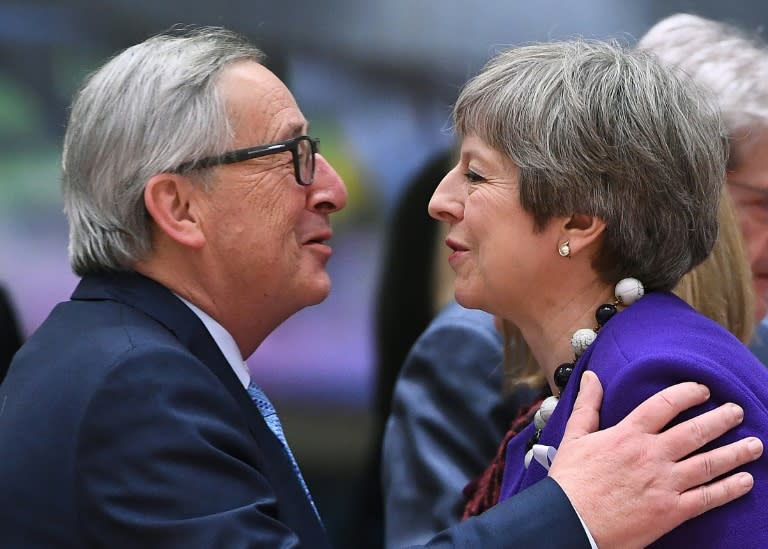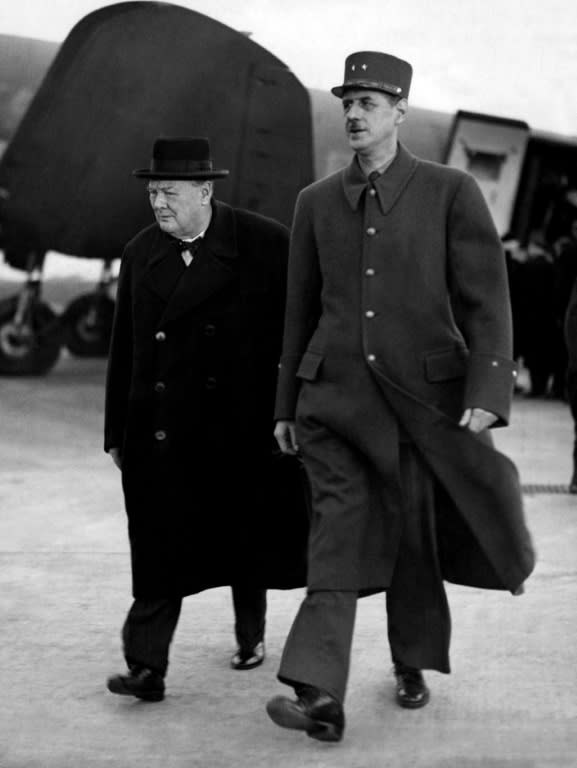Brexit talks provide stage for Barnier's second act
Michel Barnier's time on the political stage was supposed to be over. Passed over by his allies in Brussels in a failed audition for Europe's top role and out of step with his own party in his French homeland, it was time for him to take his bow. But the 67-year-old former French former minister and former EU commissioner was invited to perform his final encore as Brussels' chief Brexit negotiator -- and he's winning applause. The experienced operator has impressed pro-Europeans with his pugnacious defence of the Union's core interests and won the grudging respect of his British opposite numbers. He appears to be enjoying the return to the limelight, even though he had nothing to lose when he accepted what seemed a thankless task on October 1, 2016. A convinced European, he had hoped to take a role in building rather than dismantling the union in March 2014, when he sought the backing the centre-right PPE to become president of the EU Commission. But his own French conservative party failed to swing behind him, and former Luxembourg premier Jean-Claude Juncker got the job instead. Isolated in Brussels, Barnier later hoped to return to his homeland of Savoie in French Alps as president of the regional assembly, but again local barons of his UMP opposed him. "He embodies Europe -- everything our voters don't want," one party worthy told colleagues ahead of the 2015 poll, in a conversation overheard by an AFP reporter in Strasbourg. Friends say these failures left him bitter, but it was Europe that came to the rescue, albeit with a role mitigating what he sees as the "lose-lose" decision of British voters to quit the union. His former rival Juncker named him a special adviser on defence and security, then handed him the tricky but high-profile task of agreeing divorce terms with the pickly Brits. Two years later Barnier still hasn't nailed down the settlement terms, but he's done well enough that he felt he had to announce he is not seeking PPE support to replace Juncker next year. Instead he plans to focus on Brexit and might yet find himself in a position to slip into the top job anyway, after staying above the fray of party infighting and the European parliamentary vote in May. "The PPE was never going to let one of its members sink without trace," explained one of Barnier's allies. The Frenchman has been vice-president of the group for 12 years. In a letter to PPE president Joseph Daul, Barnier said he had a "duty and a responsibility" to see the Brexit negotiations through to the end. Now, Barnier is a rare European leader known well-enough in Britain to be caricatured by Fleet Street cartoonists and excoriated in euro-sceptic editorials. But he insists he's not in it for the knockabout. "I will do this without aggression and with much respect for a great country that will remain our ally an partner," he insisted, as he always does, in one of his now regular speeches last week. - 'Pragmatic and experienced' - When late French leader Charles de Gaulle opposed Britain's entry into the then European Common Market, Barnier voted in a 1972 French referendum to allow it in. "I have never regretted that vote because there is strength in unity," he has repeatedly declared. British europhobes were always going to scorn a patrician-looking Frenchman and veteran Brussels' insider, but those who know him best were not outraged by his nomination. "We could have done a lot worse than the pragmatic and experienced Barnier," admitted Syed Kamal, head of the British Conservative Party's group in the European Parliament. Barnier served variously as France's environment, European affairs, agriculture and foreign minister -- learning the dossiers that now bedevil the complicated break-up talks. And in Brussels, where he has been commissioner for finance and for the single market, he mastered the arcane mysteries of EU law. "He knows about the problems we'll have to negotiate with the British," Juncker explained. - Power players - Britain's task is a hard one; the unprecedented dissolution of legal, political and trade ties built over four decades after a narrow majority of voters backed an exit rejected by the bulk of the political elite. But Barnier's political challenge is almost as complex. He is the Brexit pointman not only for his nominal employer the European Commission, but also for the 27 remaining member states. The deal will have to be approved not just in Westminster but in the Strasbourg parliament -- and by power players like France's President Emmanuel Macron and Germany's Chancellor Angela Merkel. Thus far, Barnier has avoided trouble from his own side, "but we've often had to realign the talks" sniffs one diplomat. And the scars from his earlier political battles have not healed, warn others, describing a "tortured" and often bitter personality beneath Barnier's suave exterior. But, while Britain has repeatedly changed its own main negotiator, and Prime Minister Theresa May has tried and failed to go above his head directly to fellow national leaders, Barnier has held on. And if the British leader comes to Brussels this week ready to sign up to a Brexit deal that respects the integrity of Europe's single market, Barnier will be on stage to take a bow.




